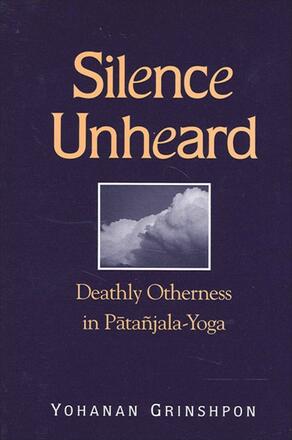
Silence Unheard
Deathly Otherness in Pātañjala-Yoga
Alternative formats available from:
Explores the experience of yoga in the Yogasutra of Patanjali.
Description
Silence Unheard maintains that the reality of Patañjali's Yogasūtra is a profound silence barely and variously audible to the scholars and interpreters who approach it. Even the Yogasūtra itself is an "approach," a voice articulating an other-- a silent, beyond-speech yogin. Author Yohanan Grinshpon presents Patañjali as a Sāṅkhya-philosopher, who interprets silence in accordance with his own dualist metaphysics and Buddhistic sensibilities. The Yogasūtra represents an intellectual's conceptualization of utter otherness rather than the yogin's verbalization of silence. Silence Unheard focuses on the yogin's supra-normal experiences (siddhis) as well as on the classification of silences and the ultimate goal of disintegration through guṇa balance. The book provides a translation of the Yogasūtra divided into two sections: an essential text, concerning the yoga practitioner, and a secondary text, concerning the philosopher. Grinshpon also surveys the encounters of intellectuals, scholars, seekers, devotees, and outsiders with the Yogasūtra.
Yohanan Grinshpon is Lecturer in Indian Studies at Hebrew University in Jerusalem.
Reviews
"…this concise but well documented and densely argued study sheds a new light on the Yogasutra and its commentaries, disclosing an unfamiliar and striking landscape to the reader. " — Indologica Taurinensia
"This is a beautifully written book that breaks from the usual scholarly conventions in order to struggle deeply and honestly with the sheer 'otherness' of a classical Indian text, Patanjali's Yogasutra. Grinshpon does not 'look away' from the psychological realities of the text. He does not explain the difficulties away or try to tame the text through some socialized or moral assumption--he lets it stand as a symbol of silence and death and unconscious samadhi, all radically 'other' to any socialized reader. Nor does he artificially separate the text, censor it, or ignore it by halves; instead, he insists on its wholeness, on the integrity of the yogic universe, and on the impossibility of entering that universe through anything other than a great sacrifice. " -- Jeffrey J. Kripal, author of Kali's Child: The Mystical and the Erotic in the Life and Teachings of Ramakrishna